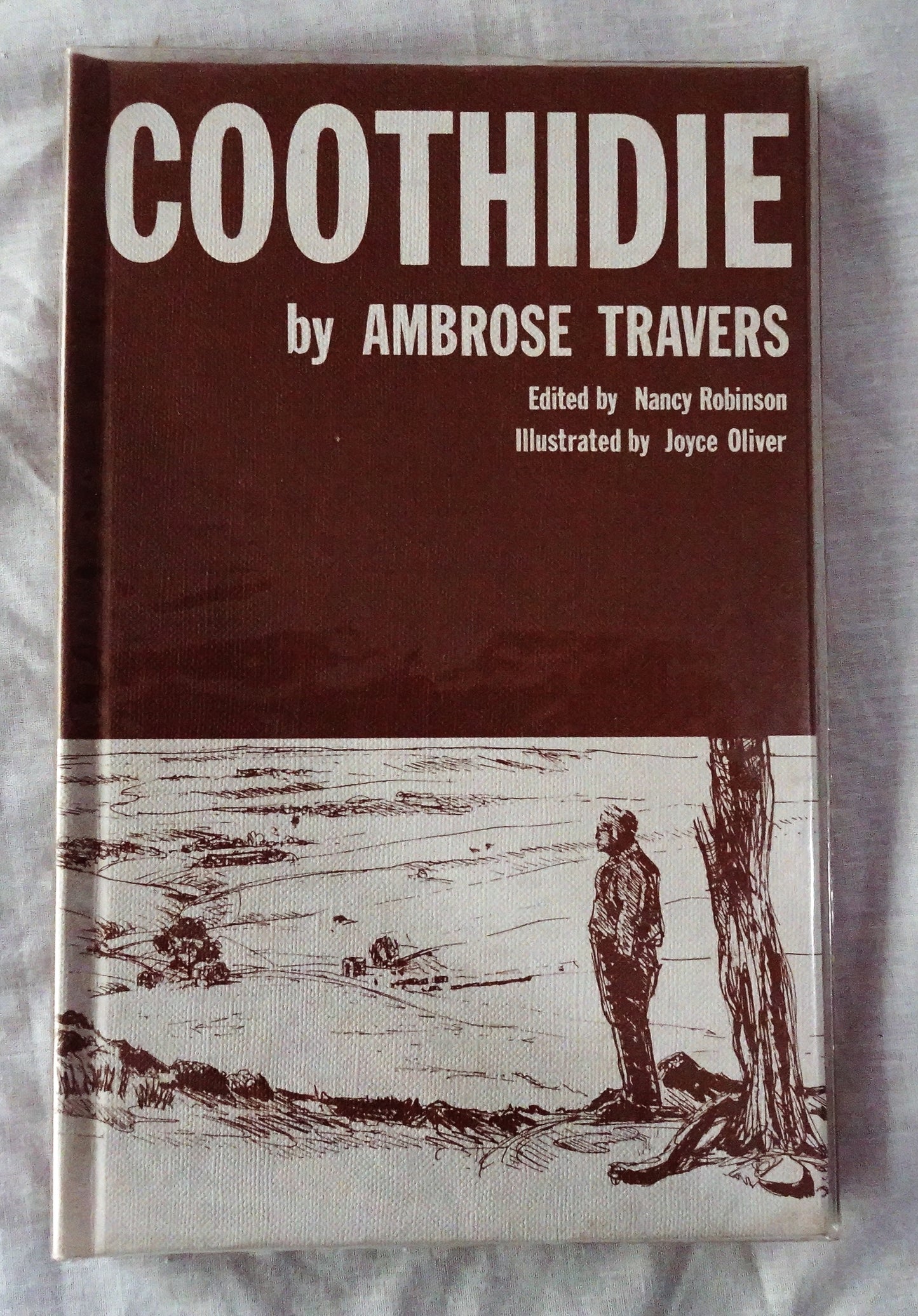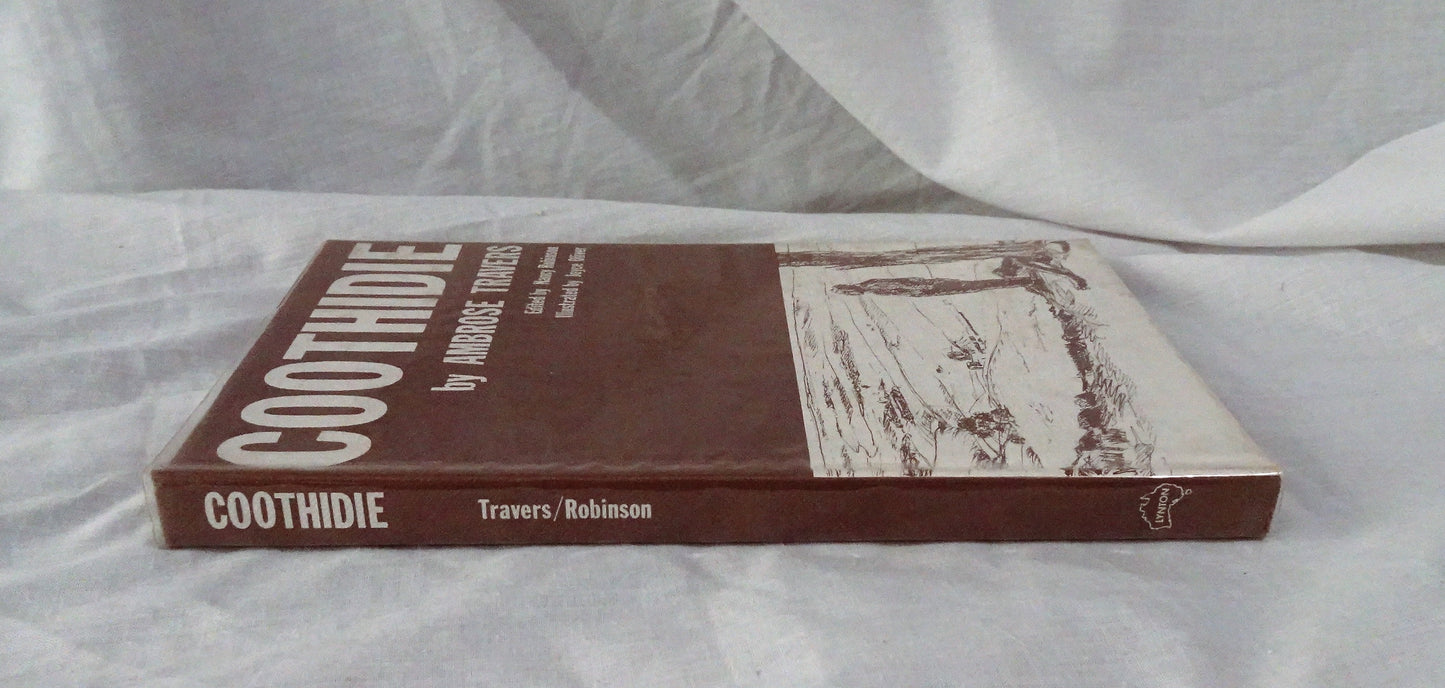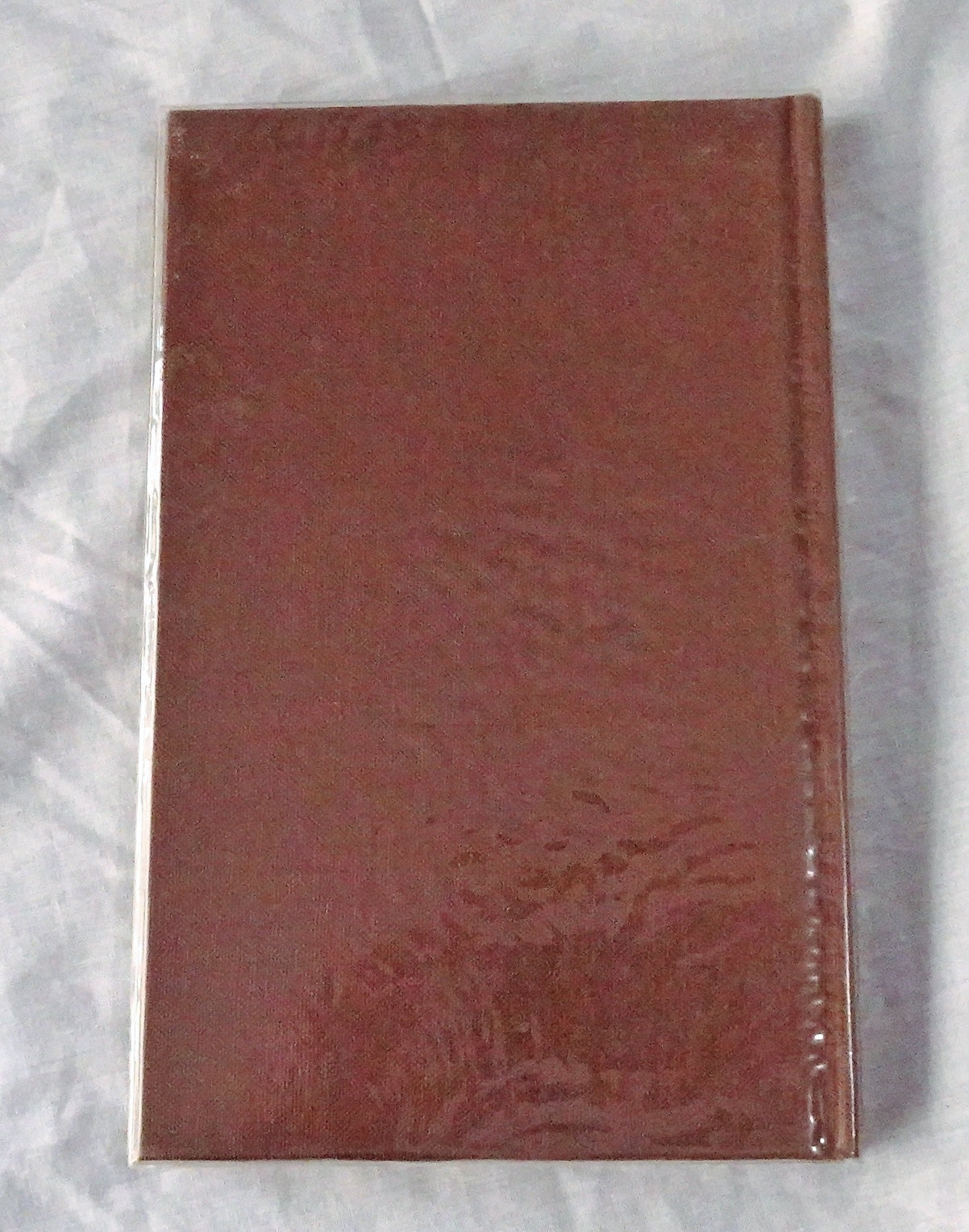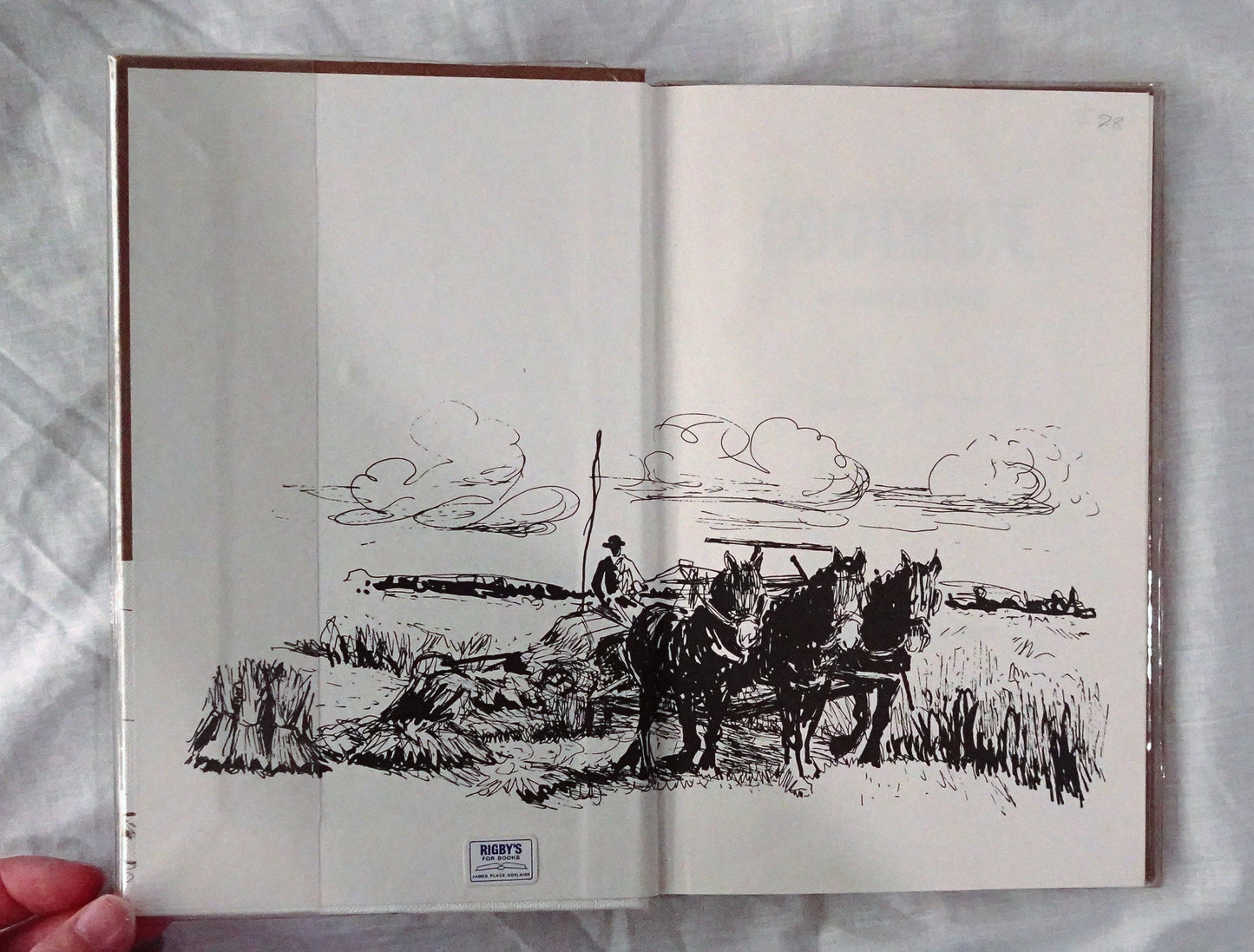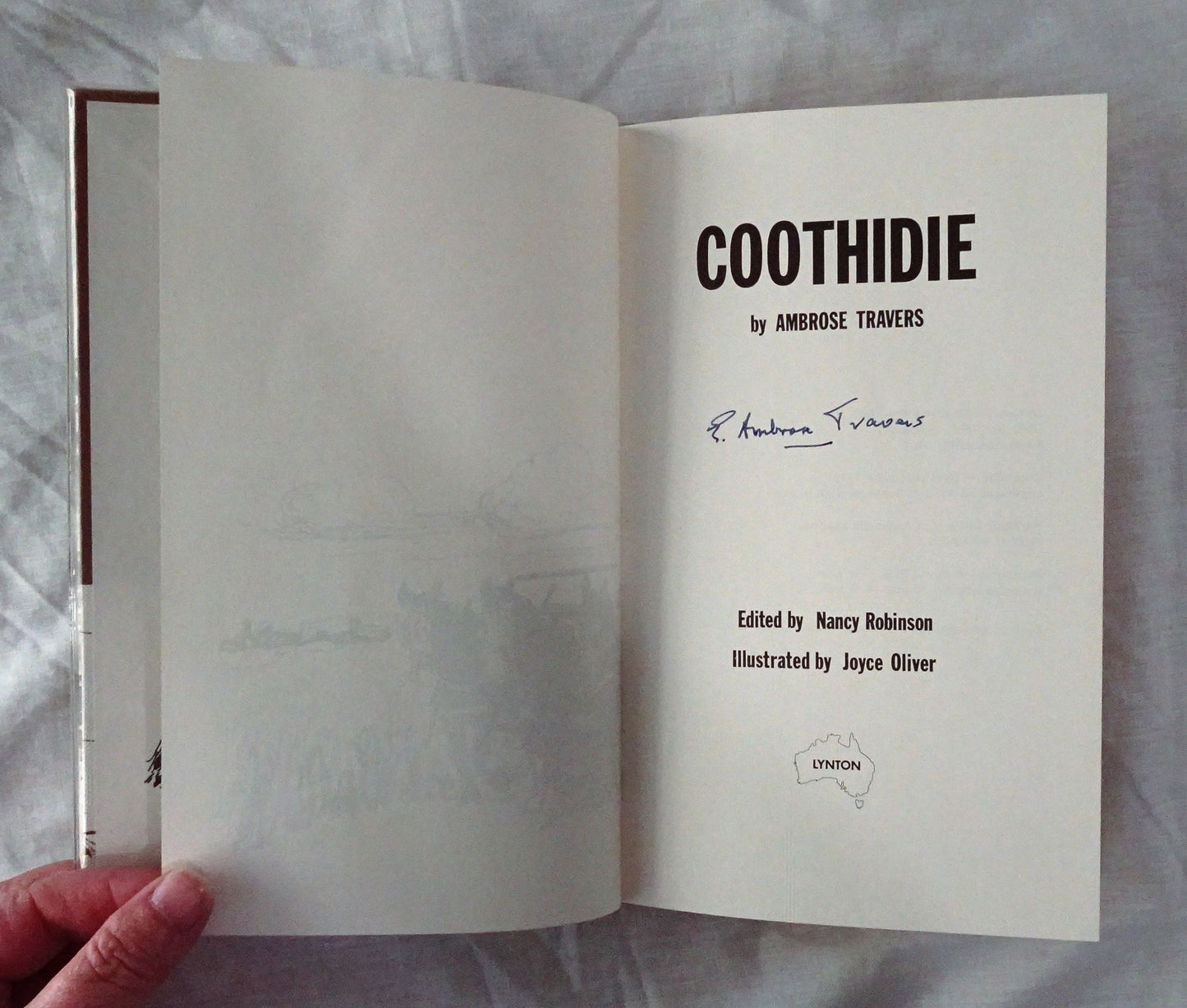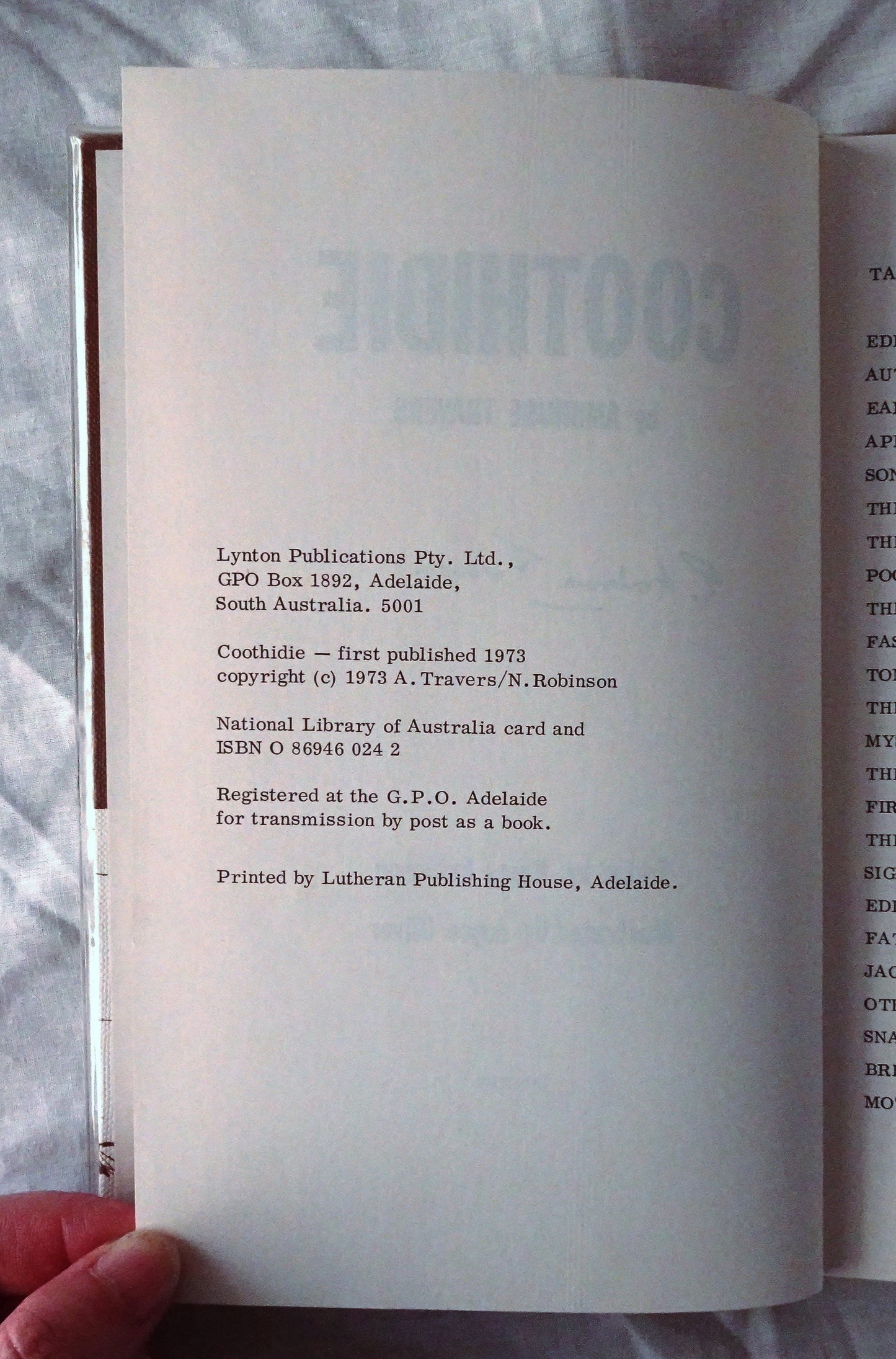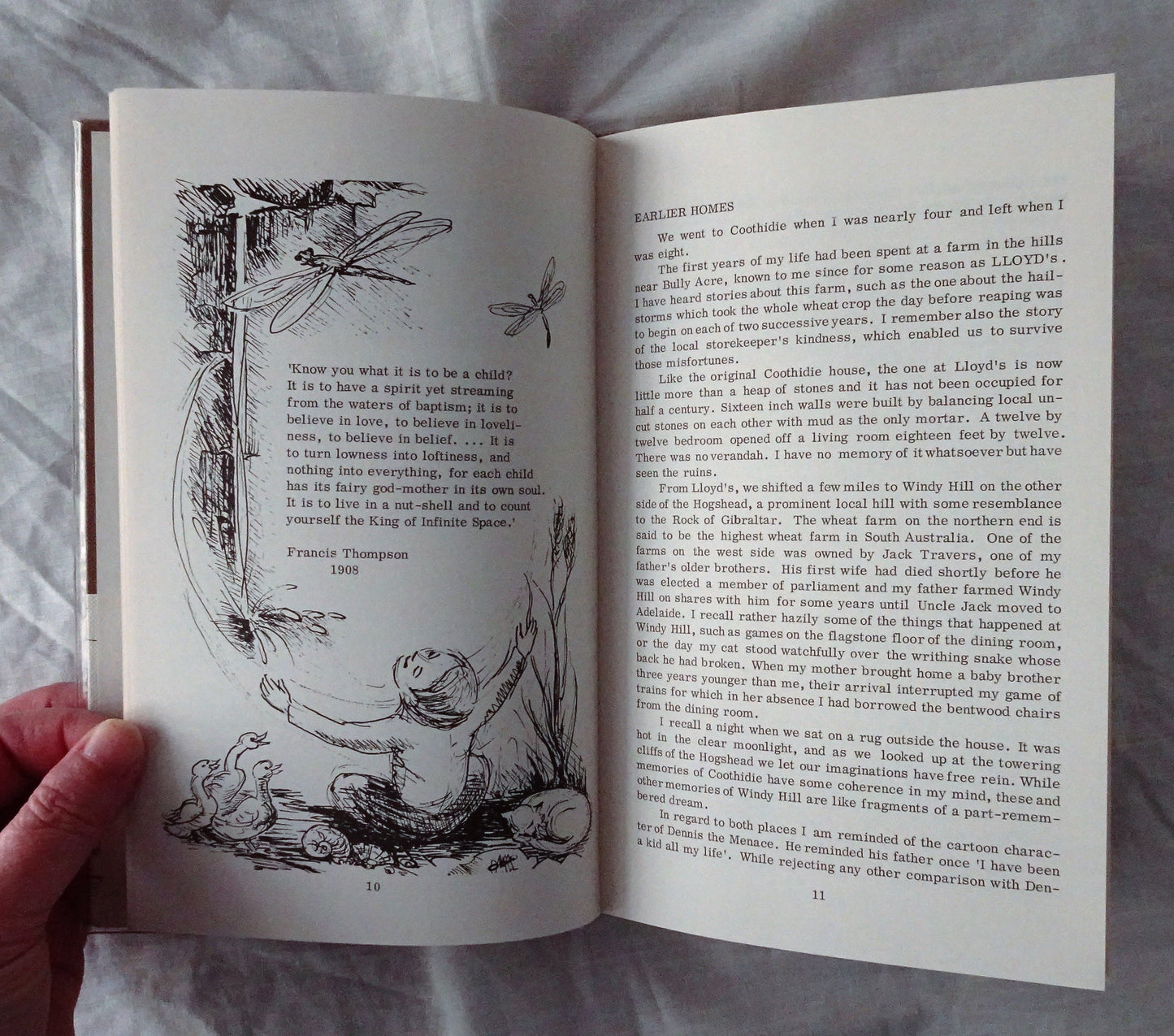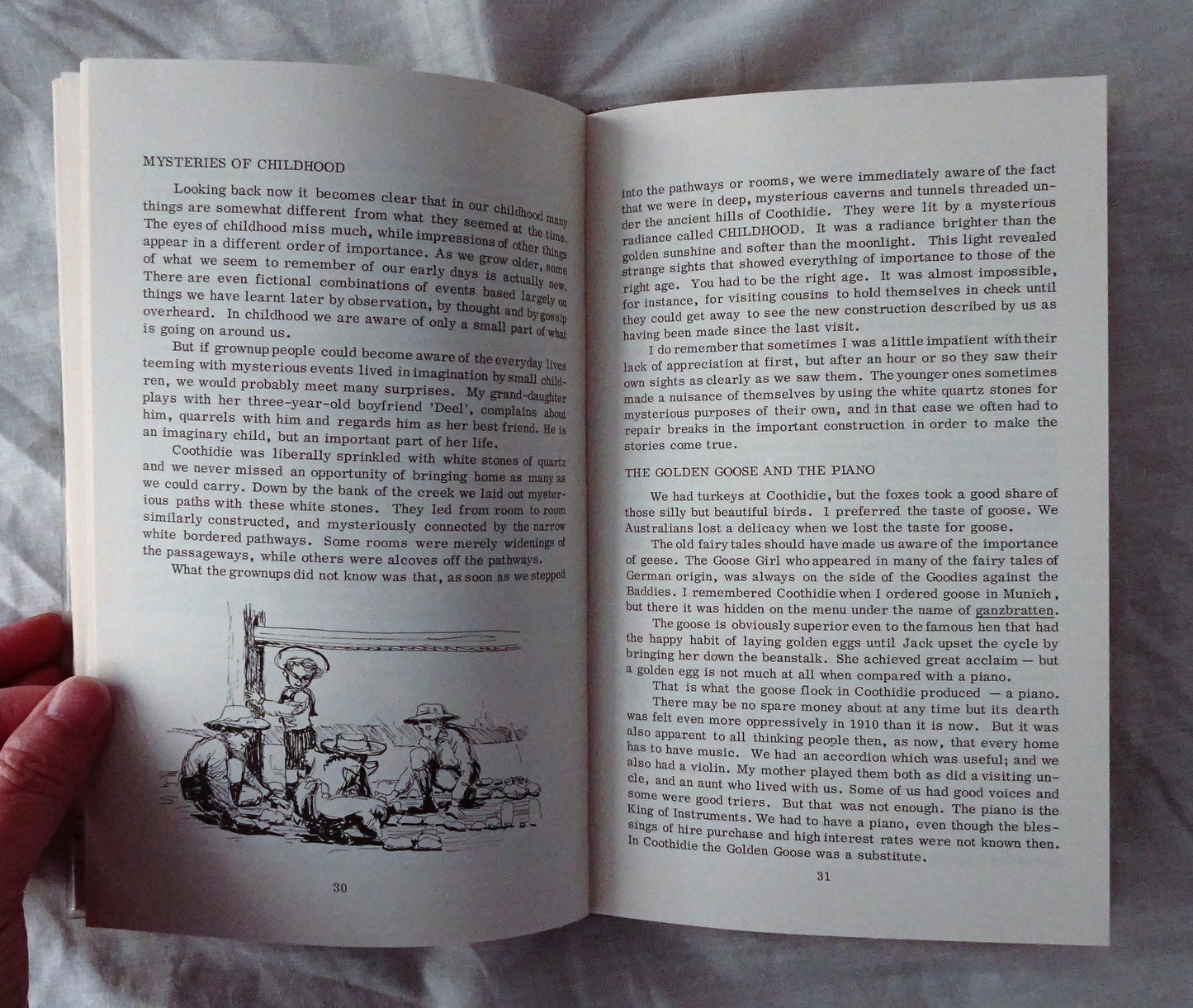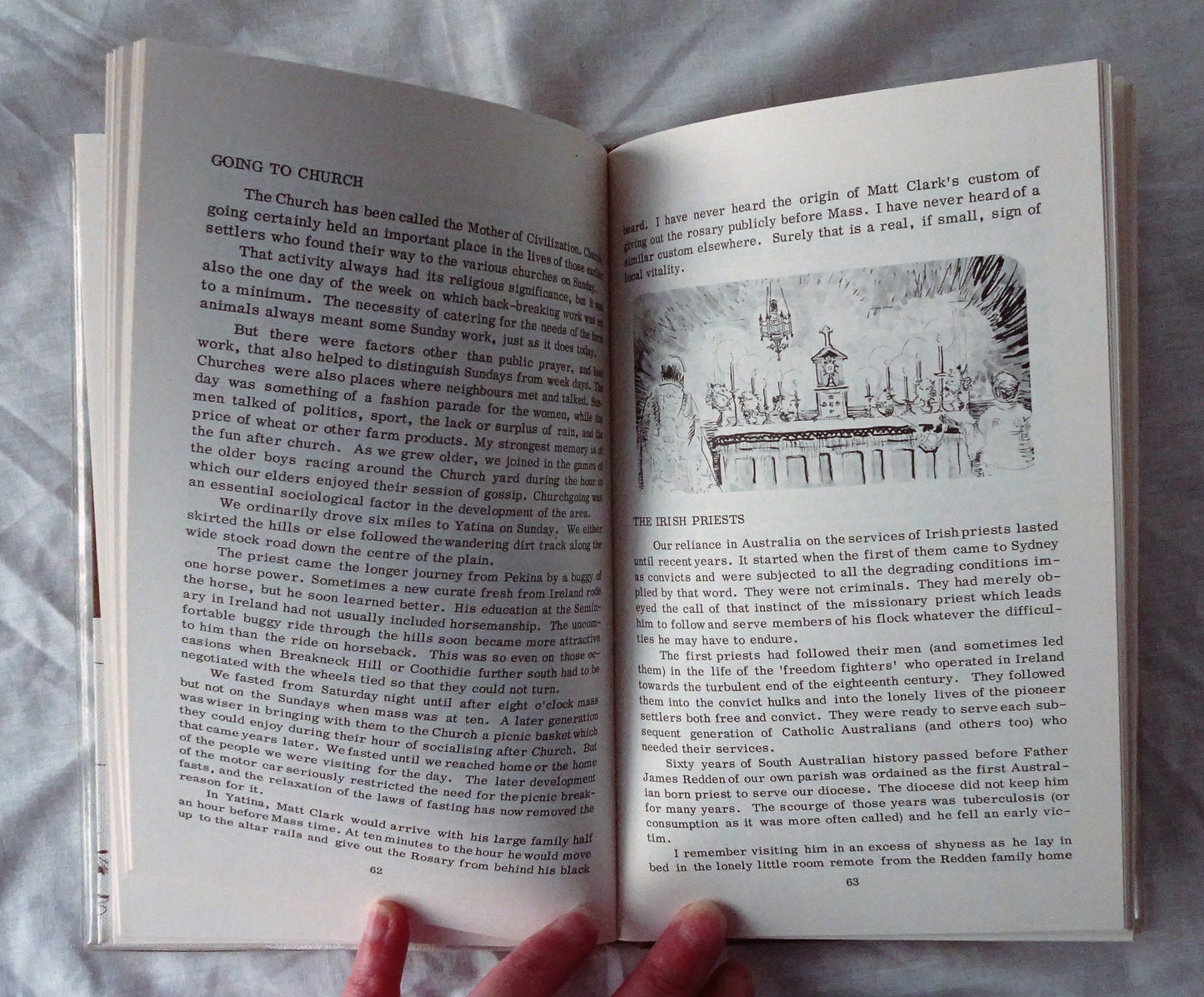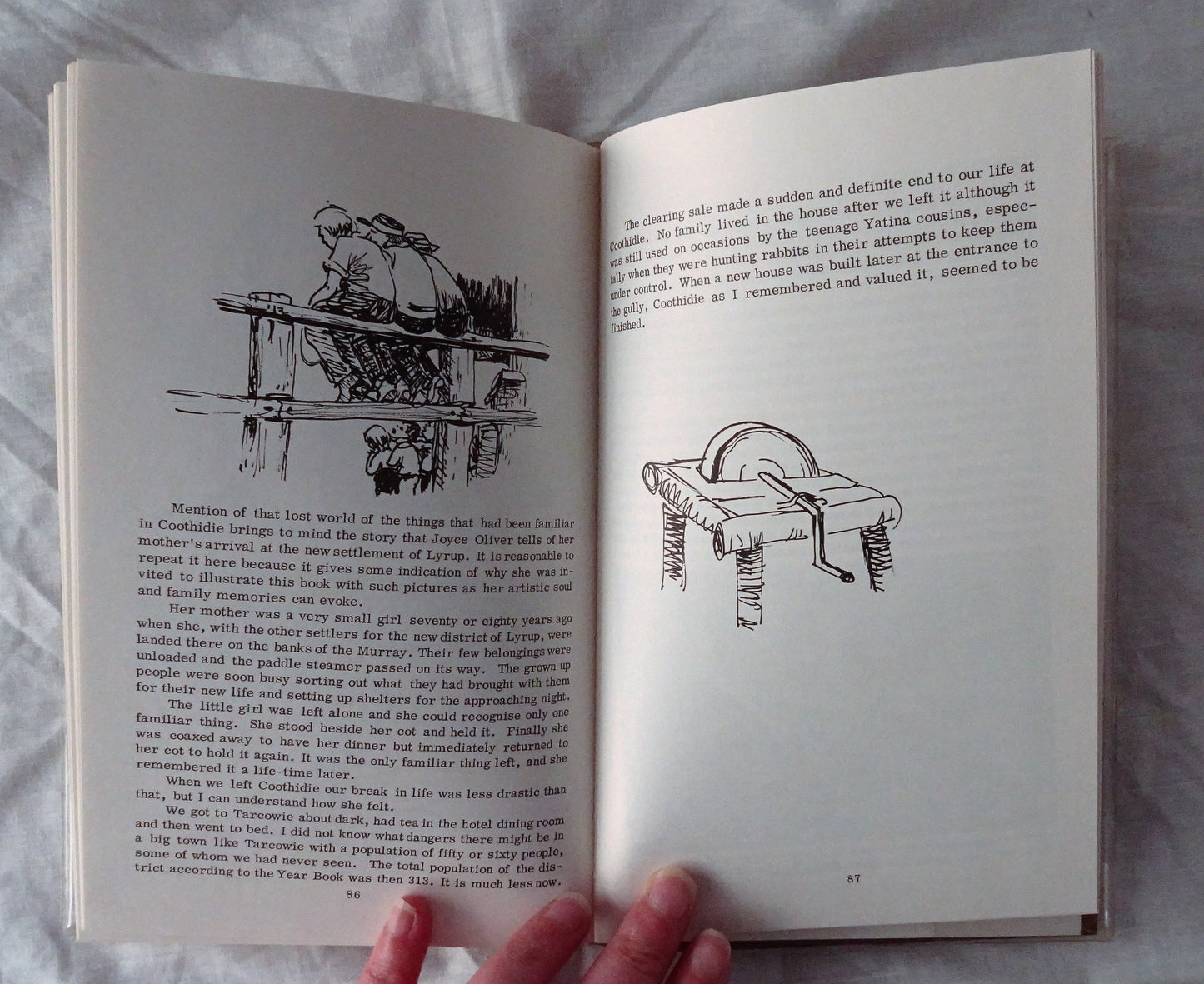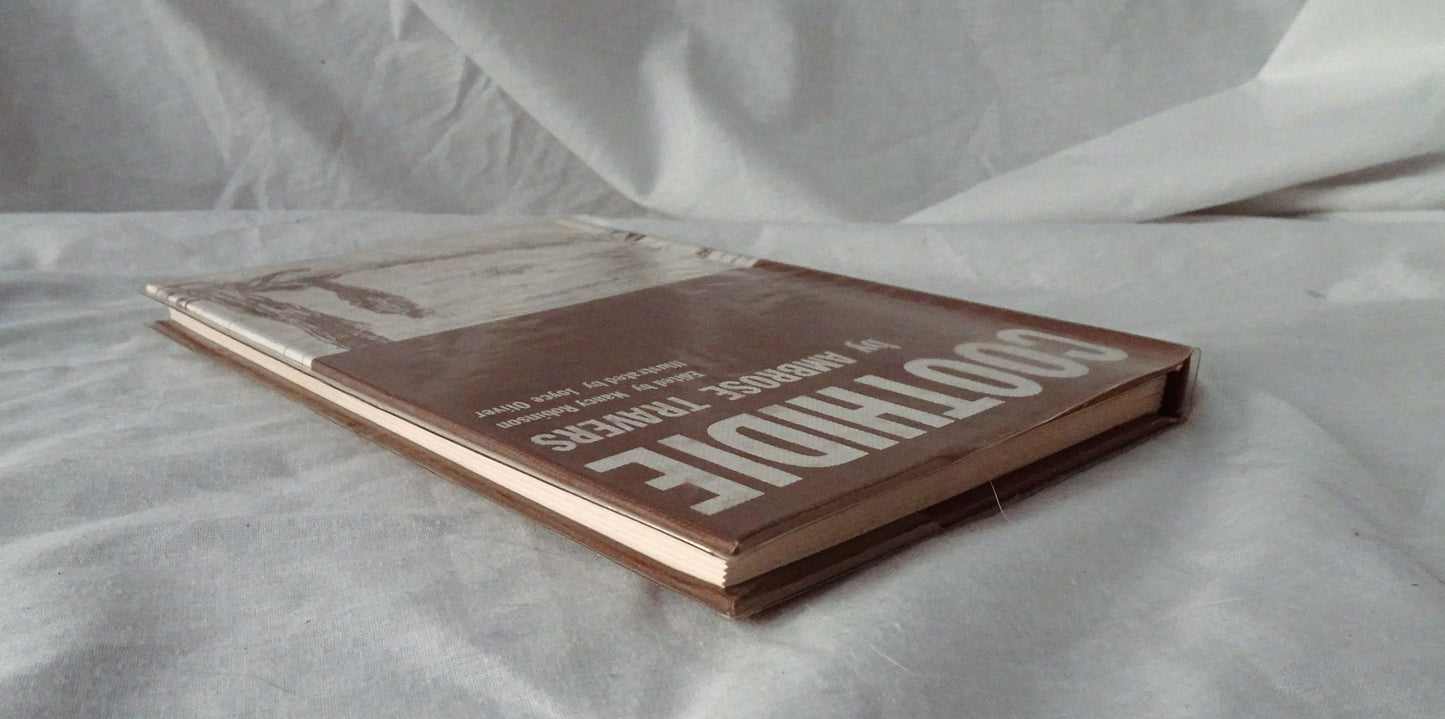Coothidie by Ambrose Travers
Coothidie by Ambrose Travers
Couldn't load pickup availability
Coothidie
by Ambrose Travers
Edited by Nancy Robinson
Illustrated by Joyce Oliver
Lynton Publications, 1973, [First Edition], [Signed], ISBN 0869460242, illustrated endpapers, line drawings in text, hardcover with illustrated boards, Mylar protective jacket
Very Good Condition, Signed by Author on title page, minor edge and shelf wear, minor rubbing to edges and corners, in protective Mylar plastic sleeve (see photographs)
“Coothidie is in the hills between Peterborough and Tarcowie and has an area of about 1700 acres. It is based on an original Crown Land grant in the name of Edward Travers the second and was taken up by him after his marriage in 1893 to Ellen Victory. The first Edward had been one of the earliest white settlers near there in 1875.
The Northern Highlands have seen many changes.
Less than one hundred and fifty years ago they were occupied by a tribe of black people known to themselves as the Ngadjuri. It has long been their undisputed territory. They are now gone forever. The blackmen were hunters who had held the north from time immemorial. The white squatters and pastoralists brought their own herds to eat the grass on which the wild game had lived. The pastoralists stayed only a few decades before they, in their turn, were replaced by the wheat growers advancing with their ploughs and railway lines under the banner of the Closer Settlement Acts of the 1870s.
Coothidie is today showing itself more suited to its use as a pastoral property than to the mixed wheat growing and grazing condition of its heyday. The original squatters are dead, so are their children, and in most cases their grandchildren too. That makes them very remote, especially when written records of all but a few are so scarce. For knowledge of them, we depend mainly on the kind of tale that was best told around the fireside when we had firesides.”
Share
